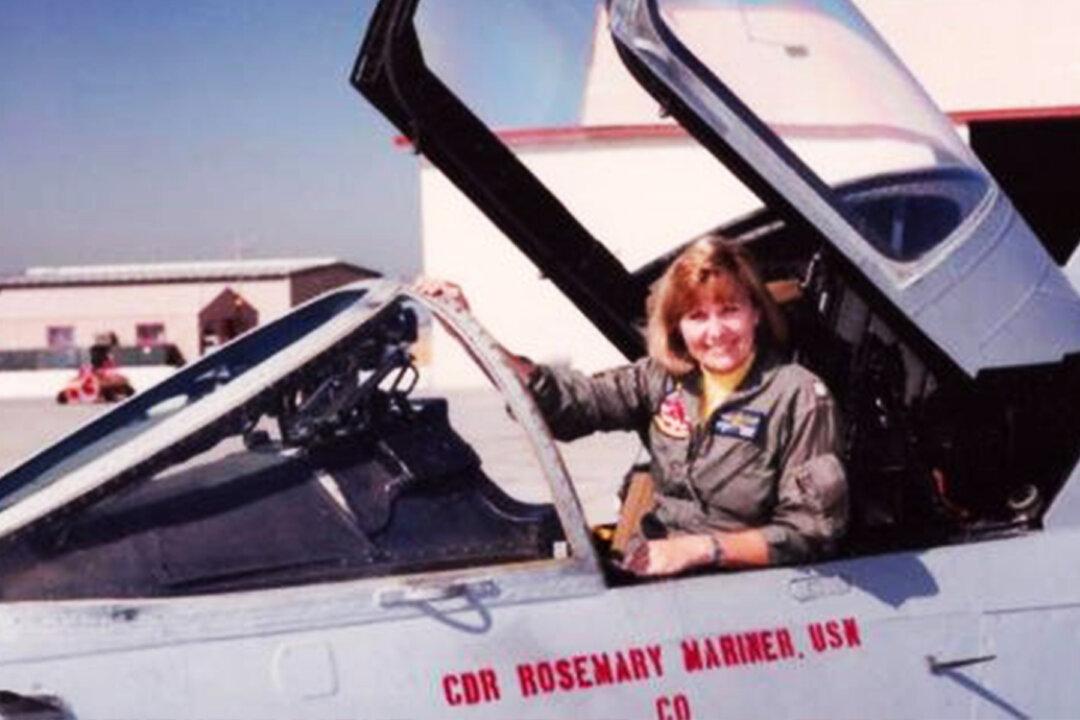“Put a wall in front of me and my reaction is to knock it down,” the late Captain Rosemary Mariner of the United States Navy told the LA Times. Mariner flew higher than any other woman before her, literally and figuratively. In 1974, she became the first woman to fly a fighter jet in the world, later becoming the first to land one on an aircraft carrier; in 1990 she was the first woman to command a fighter squadron, and she fought in Desert Storm in Iraq.
So when this pioneering pilot passed away on Jan. 24, 2019, the Navy paid tribute to one of its legends with a special flyover formation, traditionally known as the “missing man,” as one jet pulls out of formation and ascends to represent the spirit of the fallen soldier.




